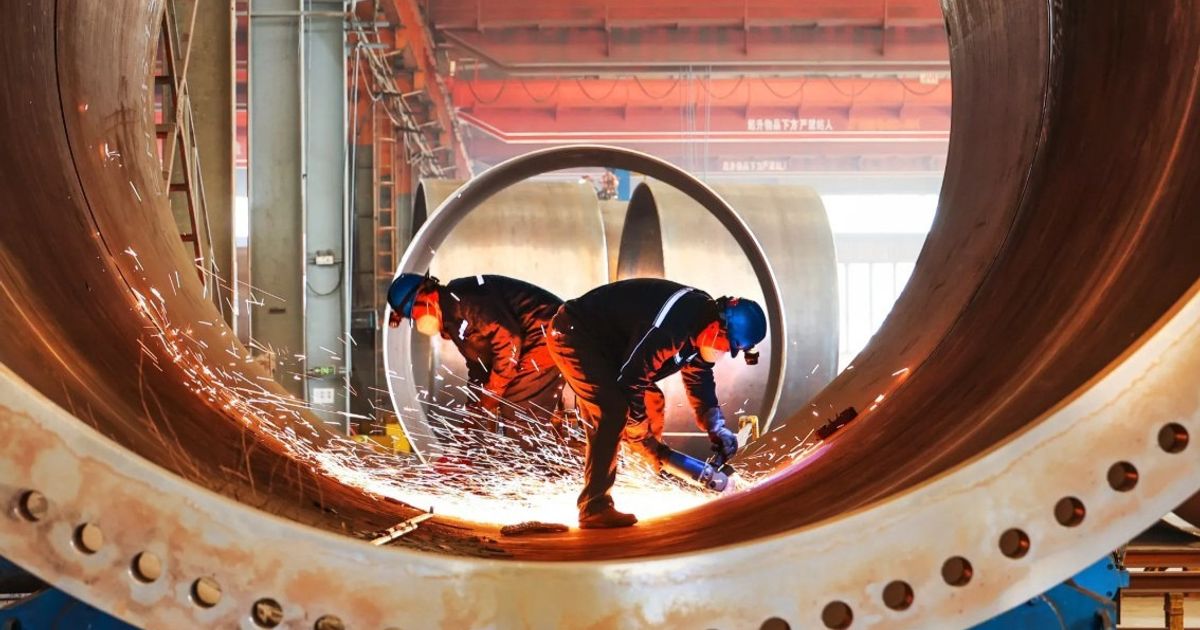The markets early welcomed an agreement between the United States and China in Geneva to reduce customs duties and other commercial obstacles. But soon, the sparkle of this agreement was a few weeks after a few weeks; China has accused Washington of violating understanding by drawing up new restrictions, while the United States replied that Beijing did not fulfill its promises on rare mineral exports. What is the background of the dispute over rare minerals? On April 4, the Chinese Ministry of Trade announced that it would start a licensing system to carry out seven types of rare minerals: Samarium, Gadulinium, Turbo, Disprosium, Luteteium, Scandium and etrium. The decision also contains products containing these elements, including the permanent magnets manufactured by NDFEBB, which is widely used in electric cars and hard storage tablets. You may also be interested in: China’s dominance of rare minerals gives Shi dominance in the trade war with America, although this measure has come to the United States within a set of retaliation, but it applies to exports to all countries. Beijing also raised customs duties on US commodities and took a series of additional measures against Washington, including: The opening of a dumping of investigation into medical CT scans coming from the United States and India to import poultry products from two US businesses. An American opened an investigation against the branch of ‘Du Pont’ in China on the suspicion of monopolistic offenses in subsequent days, the mutual retaliation measures increased as Beijing added 12 new US entities to the list of export restrictions, and 6 companies to the list of unreliable entities, which meant they would buy Chinese products. What did China promise in Geneva? During the meeting, who brought together representatives of President Donald Trump and his Chinese counterpart Xi Jinping in Switzerland, a month after announcing the procedures, Chinese officials agreed to reduce customs duties and not stop measures against US companies, according to the joint statement. As a result, China lifted the ban on export of products to 28 US companies that were included in April’s decision, and suspended the inclusion of 17 US companies on the list of unreliable entities, for a 90 -day period. This temporary freezing point enabled Chinese companies to submit requests to the Ministry of Trade to get permission to sell their products to these entities, but the statement did not make it clear whether these requests would accept it or not. But China has issued no promise to cancel the licensing requirements to perform the seven metals. On the contrary, in May, the government launched an internal campaign to combat biomuster smuggling, including rare minerals, as part of an attempt to confirm all exports to the regulatory system. How does the export license system work? According to a recent report issued by the US Chinese Business Council, the export system in China looks very similar to its US counterpart; It requires a license for each consignment, in addition to submitting the end of the user certificates, and detailed information in the requests. According to the prescriptions of the Chinese Ministry of Trade, the period of reviewing the export licenses of rare metals with double use takes 45 working days, but this period may differ from case by case. Since the introduction of the double control system, China gradually elaborates the list of products subject to this system. Exports usually decrease temporarily to the addition of a new product, due to the pressure due to the number of major requests compared to the ability of the bureaucratic system that emerges to handle it. According to an official in a large Asian country, some US businesses and other countries began acquiring licenses, asking not to be identified, saying his country approved last week. “We have started to see some approvals, but they are slower than companies want,” said Michael Hart, head of the US Chamber of Commerce in China. He added: “Part of the delay is caused by China’s pursuit of the mechanisms of its new system, and not necessarily because of a decision not to allow export.” According to Hart, the licenses of the export of elements such as Germanium and Muleum that dropped when the licensing requirements were imposed were later returned, but they have not yet reached their previous levels. What is the United States expected of China? The United States expressed disappointment over China’s performance after the Geneva agreement, accusing it of a strangling important supplies of rare magnets and basic minerals. Last week, Trump accused China of violating the agreement, while US commercial actor Jimson Ghrir said in an interview with CNBC: “We did not see how the flow of these important minerals was as it was supposed to happen.” Ghurar added that China is “delaying and increasing the flow of important minerals and rare magnets,” notes that the US administration “is carefully following the extent of China’s dedication, or the lack of commitment to the agreement.” US officials expected the resumption of rare Chinese metal exports immediately after the Geneva talks, but it surprised many US businesses, as Hart said early this week that the rate of restrictions was ‘slower than the industry’.
How does the battle for rare minerals threaten the commercial ceasefire between China and America?
